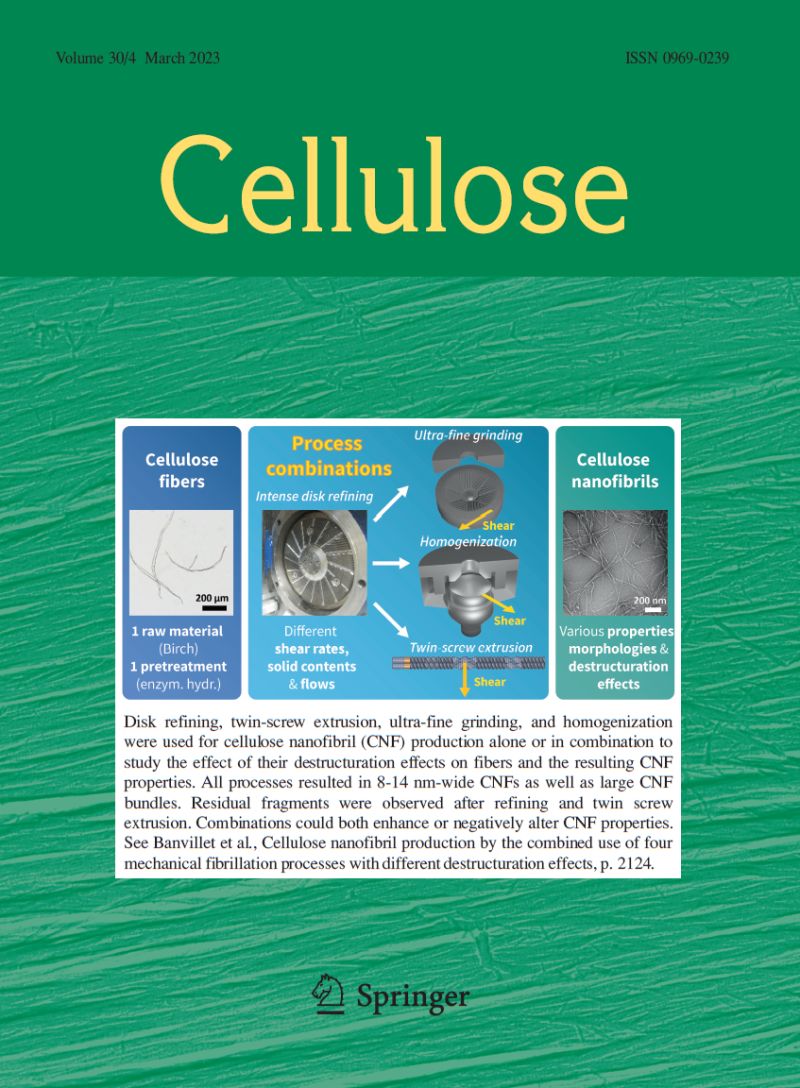Potential of sustainable non-woody Miscanthus sinensis fibers in papermaking
Abstract
There is a need for sustainable and eco-friendly materials to drive innovation in the ever-evolving paper industry in producing high-quality paper. Conventional approaches use woody fibers for their better paper-forming properties and strength. However, with an increase in population and a ban on single-use plastics, a need exists to produce more paper at economical prices. This research aims to minimize the use of woody fibers in papermaking by blending miscanthus (non-woody) pulp in eucalyptus (woody) pulp, thereby achieving similar paper properties as virgin pulp. Cationic starch and sodium alginate were electrostatically deposited on fibers to enhance the strength of the paper produced. The addition of cationic starch and sodium alginate increased the water retention value while the freeness in terms of °SR remained constant. The Fourier-transform infrared spectroscopy confirmed the presence of cationic starch and alginate which reduced the carboxyl peaks on bonding with hydroxyl groups of cellulose fibers. The developed paper sheets made from pulp blend after adding cationic starch and alginate were more remarkable than those made from virgin eucalyptus pulp in terms of mechanical properties, justifying their application in the packaging sector. Moreover, the handsheets were completely recyclable without any micro-stickies or flocs. The developed paper can be a sustainable and cost-effective alternative for reducing the utilization of wood fibers in papermaking.


 求助内容:
求助内容: 应助结果提醒方式:
应助结果提醒方式:


